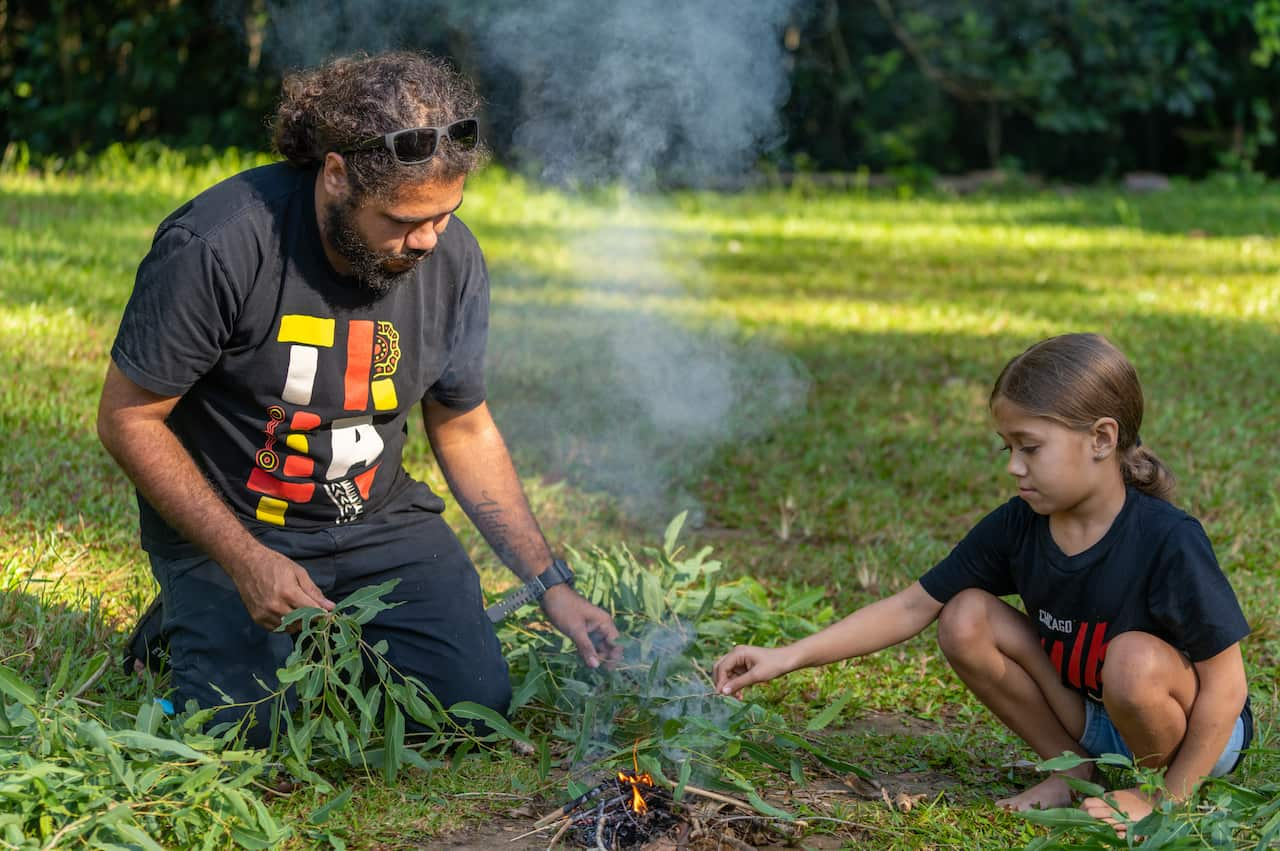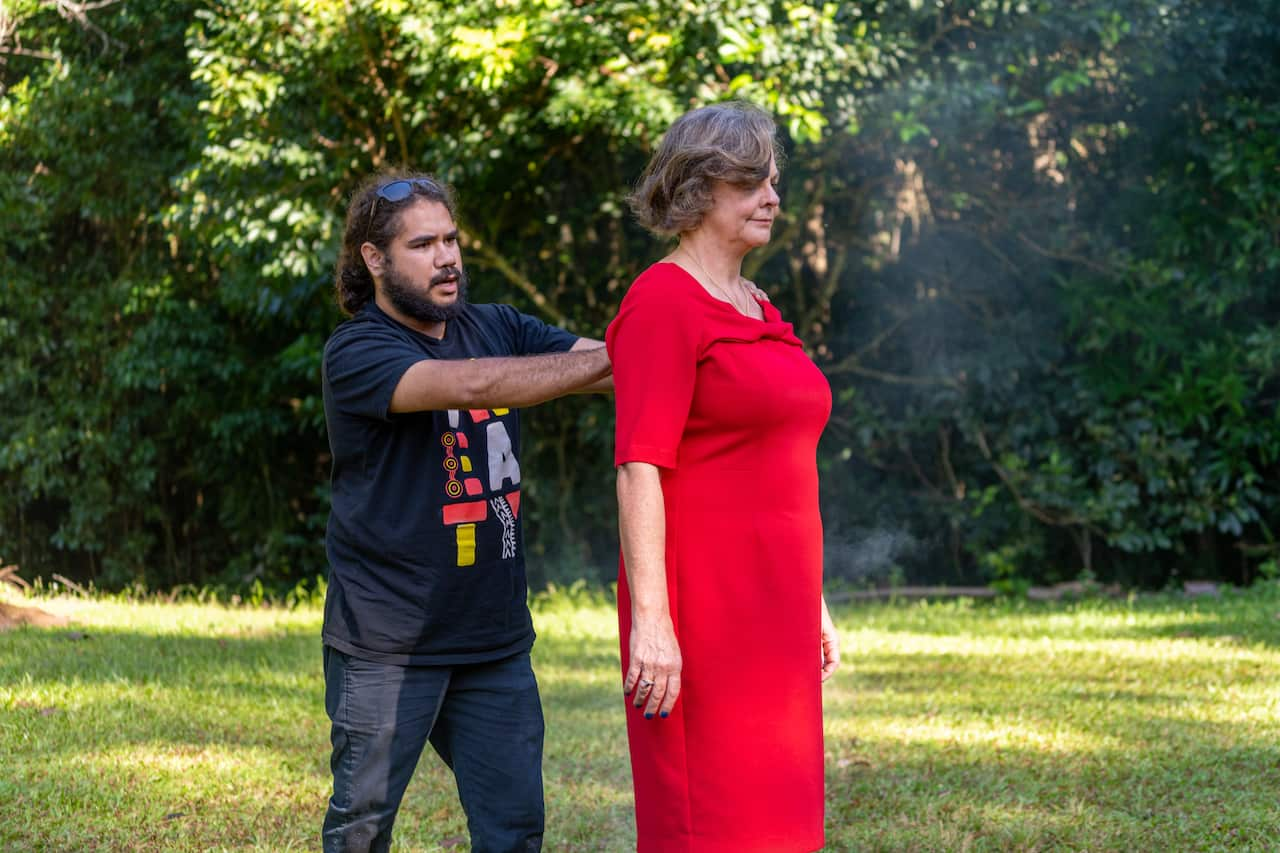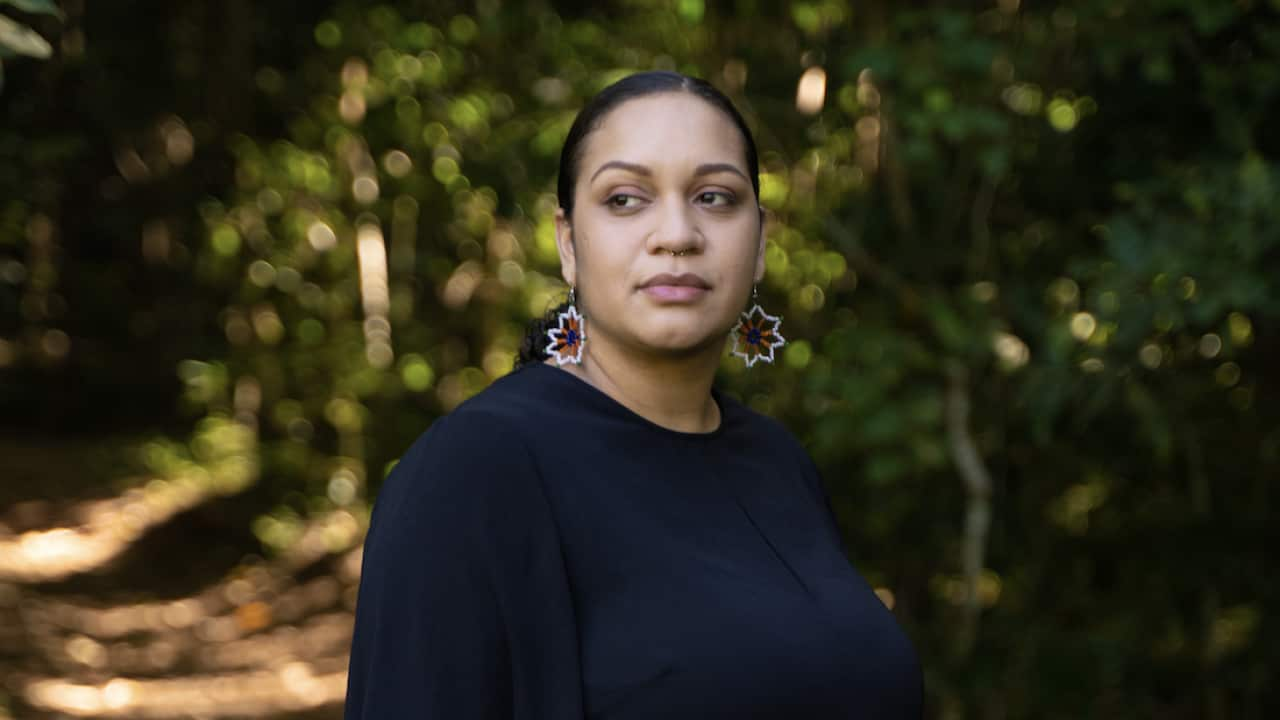On-Country evidence given by First Nations people has continued in Gimuy (Cairns), as an historic legal challenge against Clive Palmer’s proposed Galilee Coal Project enters its sixth week.
Palmer's Waratah Coal is applying for a mining lease and environmental approval to extract up to 40 million tonnes of coal annually over the next 25 years, the majority of which is expected to be exported.
The Queensland Land Court today travelled to Isabella Falls, in southern Cairns, on Yidinji country, to hear traditional custodians give evidence in accordance with First Nations protocols.
The First Nations-led group Youth Verdict and co-client Bimblebox Alliance have argued the project threatens the human and cultural rights of traditional custodians through its impact on climate change.
They also stated the mine would destroy the Bimblebox Nature Refuge which sits atop the proposed mine site.
Last week, the Queensland Land Court travelled to Erub and Poruma on Zenadth Kes (the Torres Strait) and heard from members of the community about how rising sea levels due to climate change are impacting on cultural practises and country.
"It's important that the land court hear both the perspective of our island First Nations people, and also our mainland First Nations people in Queensland," Youth Verdict co-director Murrawah Johnson told NITV News.
"It gives a bit more of the bigger picture of the different types of climate change impacts that are already happening, that First Nations people are already adapting to, and how those impacts are already limiting their ability to exercise their human rights through their cultural rights."

Landmark case could set precedent
It's the first time in history the Queensland Land Court have heard First Nations evidence on Country and hopefully it won’t be the last.
"We're really hoping that this shifts the dynamic a little bit in terms of First Nations people engaging with the land court," Johnson said.
"Hopefully this means that First Nations people, [will] be able to give on-Country evidence in future cases to the land court, and that their knowledge [will be] really considered in the decisions that the land court makes about the approvals of new coal mines."
Traditional custodians said they have noticed landscape changes due to more frequent and extreme weather events and they are concerned about the impact of rising emissions on their health.

"When it comes to new coal mines being proposed, I guess this is a real clear example of the disconnect between First Nations people and non-Indigenous Australians," Johnson said.
"It's really not surprising that it's 2022 and this is the first time the land court’s taking such significant evidence from First Nations people.
"I think it really speaks to the relationship between First Nations people and the settler colony, that there are still unresolved questions in terms of who owns the land, and ultimately, who makes the decisions about what happens on country."
Despite it taking nearly two years to hold a six-week hearing, due to COVID-19, Johnson says she’s pleased the time has come to hear from those who would be impacted most if the project went ahead.
"It's definitely been a marathon but at the same time, we're excited that we're finally in the court and we've been able to put our evidence forward," Johnson said.
"We believe so much in our evidence and our witnesses and the knowledge that they hold and just hope that the land court really can absorb that and has absorbed that with this on country evidence."
Youth Verdict and Bimblebox Alliance’s closing arguments are set to be heard on the 20th and 21st of July in Brisbane.

